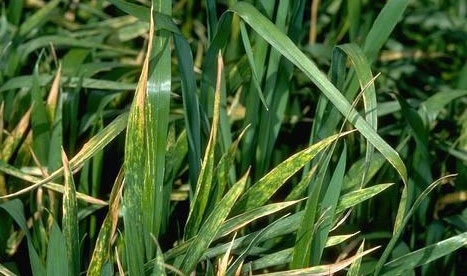
Serious stripe rust epidemics periodically claim the yield of grain growing around the world, including many places where a crop failure can mean widespread hunger in a local population.
Over time, researchers, plant breeders and farmers have found the best way to control stripe rust disease is growing varieties that are genetically resistant to the fungus. However, that strategy posed its own problems. The fungus that causes rust was able to evolve a way around the genetic resistance after only a few years.
“That's the importance of the variety study that we're doing right now,” said Steve Wright, UC Cooperative Extension advisor in Tulare County.
Wright and his colleagues are field testing grain varieties that have been developed by plant geneticist Jorge Dubcovsky, professor in the Department of Plant Sciences at UC Davis.
From 2007 to 2009, the Dubcovsky lab found two different mechanisms of resistance to rust and identified the genes that convey the resistance in the wheat genome. Wheat breeders are now able to use markers established by Dubcovsky to produce wheat selections with rust resistance.
“We're growing these varieties at a site in Corcoran, at the West Side Research and Extension Center, and at a dry land site in Ducor,” Wright said. “The stripe rust resistant varieties are doing very well.”
Since the genes identified by the Dubcovsky lab have been available to plant breeders, “we haven't seen a variety break down as quickly,” Wright said.